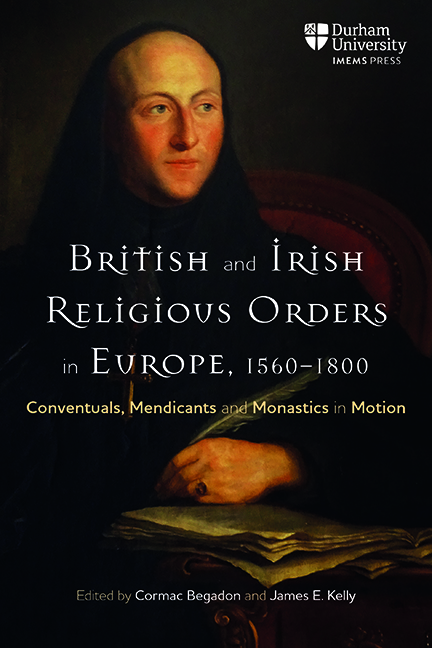 British and Irish Religious Orders in Europe, 1560-1800
British and Irish Religious Orders in Europe, 1560-1800 2 - The Regular Clergy and the Episcopate in Ireland, 1600–1650
Published online by Cambridge University Press: 07 October 2022
Summary
In the first half of the seventeenth century, Ireland developed a peculiar ecclesiastical configuration as the site of the only resident episcopate in the territory of a non-Catholic state. During the same time frame, the regular orders and especially the Franciscans enjoyed a period of spectacular growth. Not surprisingly, very significant tensions erupted at frequent intervals between different branches of the Irish clergy as they adapted to the sui generis conditions of the island, and these have left a deep mark on the archival record of the period. Yet the level of complaint and recrimination which has been preserved can perhaps obscure the degree to which the Irish secular and regular clergy managed to co-exist in relative harmony. The purpose of this paper is to suggest a number of reasons why the peculiar Irish system actually functioned quite effectively in a way which allowed both for a very vibrant contribution from the religious orders and the development of a genuinely functioning hierarchy.
Regulars in the Irish Episcopate
In 1632, Paul Harris, an English secular priest originally surnamed Green and resident in Dublin since about 1613, somewhat counter-intuitively noted that as a result of the Franciscan friars’ teaching in the archdiocese ‘every tradesman, Kitchen-maide and three-footed old trot’ had ‘rammed into their heads’ the doctrine that ‘the Bishop is to be obeyed in right and wrong, and that no inferior unto him may examine or call in question his Censures, Decrees or Judgments.’ He continued nastily:
If it be not lawful for the Subject or Inferiour to question the sentence of his superior: the priest of the Bishop. I then demand: How came to passe, that in England of late, our Friars doe question the commaund of the Bishop of Calcedon, that most reverend, pious and learned prelate, who was placed over the English Cleargy by the See Apostolicke? Wherefore did the Monkes, as also the Ignatian Friars or Jesuites, write diverse books and treatises against him; which books wee have scene and read; surely these Monkes were none of the Lord of Calcedon his Superiours at all.
- Type
- Chapter
- Information
- British and Irish Religious Orders in Europe, 1560-1800Conventuals, Mendicants and Monastics in Motion, pp. 43 - 59Publisher: Boydell & BrewerPrint publication year: 2022


